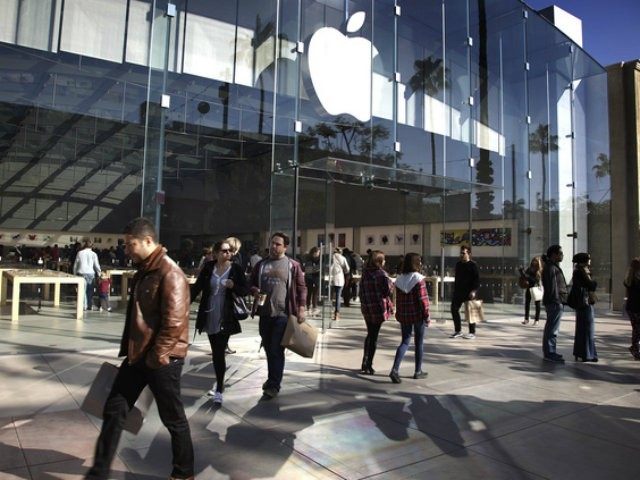Apple (AAPL: NASDAQ) may have printed the largest quarterly earnings in the history of capitalism, but the smartphone market is moving against the future of the Apple iPhone as Google’s Android operating system software gains market domination.
Apple sold $74.6 billion in products and earned $18.04 billion for the December 2014 quarter. The profit was the largest corporate profit in the history of capitalism. But it was accomplished with the iPhone accounting for 68.6% of revenue and closer to 80% of profit. Revenue for its other iconic iOS device, the iPad, declined at a -22% annual rate.
Apple’s strategy is to focus only on high-end price point customers. As Think Finance states, the success is “due to its brand image, ecosystem and good software/hardware integration.” Its latest success came from the iPhone 6 and 6 Plus, matching the larger screens of handset manufacturers like Samsung. Appple had lost market share by fighting the trend to larger screens for over a year.
The super-sized success drove an over 30% revenue gain and huge average selling price margin that led to the almost 50% profit gain. Earnings per share of $3.06 for the quarter pleasantly beat analysts expectations of $2.59 EPS consensus for the quarter. The stock spiked to an all-time-record of almost $120, before falling back to about $116.
But in limiting itself exclusively to the luxury price point, Apple allowed Google’s Android global software market share for smartphones to hit 84.4%. Android’s market share dominance had been about emerging-market-bound low-feature devices, but that is dramatically changing with the introduction of Qualcomm’s (NASDAQ:QCOM) Snapdragon 800, 801, 805 and 810 family of chip sets, and Android Lollipop 5.0 software, which now allows fully functional $100 smartphones.
These high-feature phones are propelling mass volume manufacturers like Xiaomi and OnePlus to offer premium phones with high-end camera features at about $250, 60% less than iPhone’s price point.
Apple’s volume of “apps” advantage has also been neutralized with the ease of Android’s interface and mountain of free downloads available from Google Play.
With 84% of users in Android’s ecosystem locked into user habits, it will be frustrating for users to switch to the iOS software. But more importantly, the odds are that at some point Android’s millions of free-ware programmers will introduce a unique “killer app” that leap-frogs what is available as an iStore app. Facebook is already testing the equivalent of “Facebook lite” in emerging markets that requires much less RAM and data transfer speed.
The success of Apple’s late adoption of larger display screens will have run its course by this summer. With Apple locked into a luxury price point, Android will relentlessly continue to “reach both lower and lower and higher and higher into the spectrum of customers it serves,” according to Think Finance. These customers will build Android use habits and already can do everything that can be done on an iPhone for 60% less cost.
Apple has won the profit battle, but it may be losing the smartphone war.

COMMENTS
Please let us know if you're having issues with commenting.